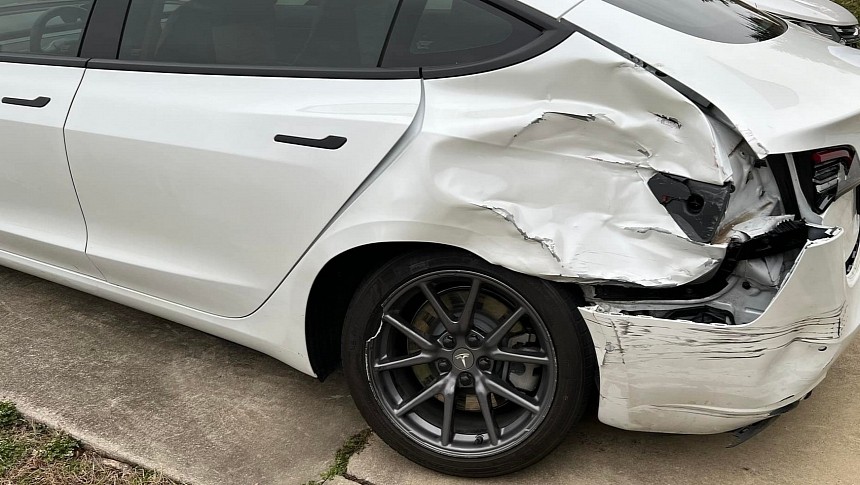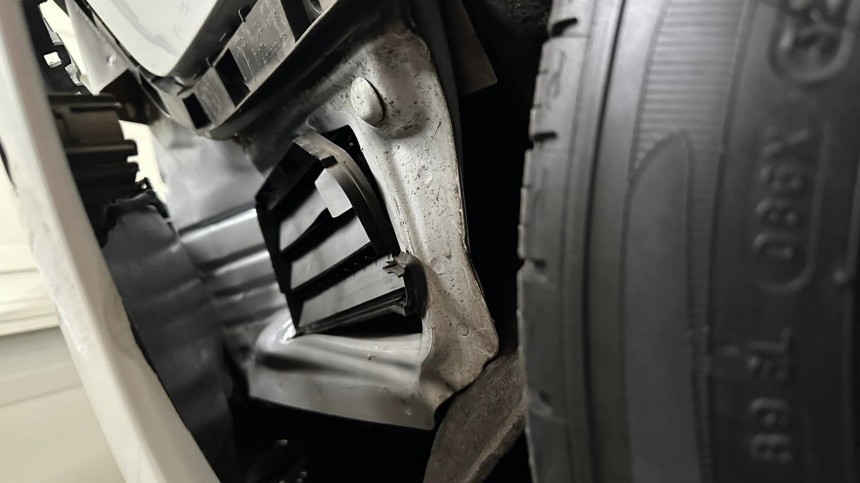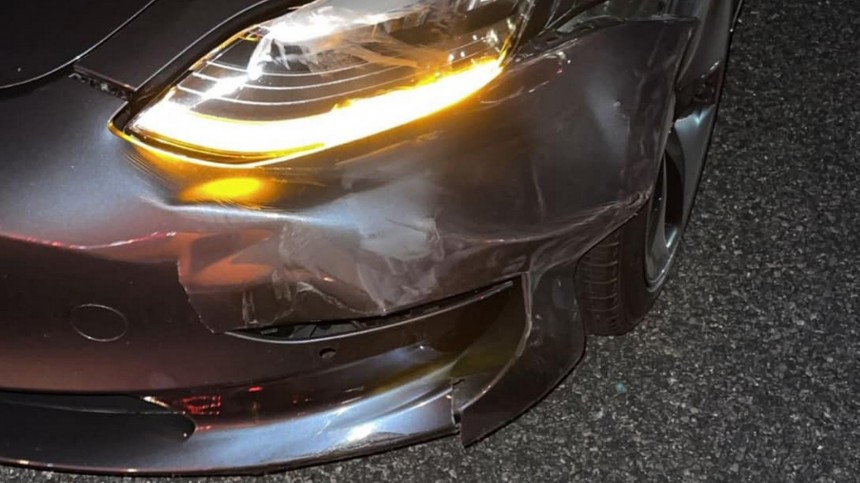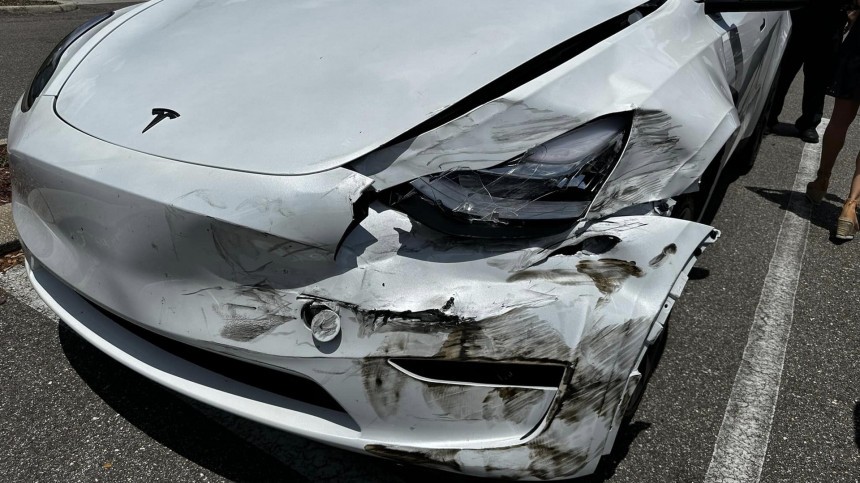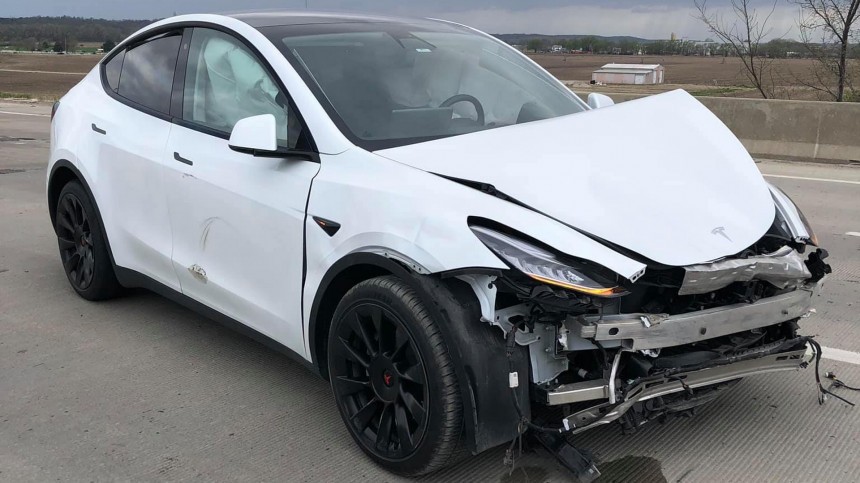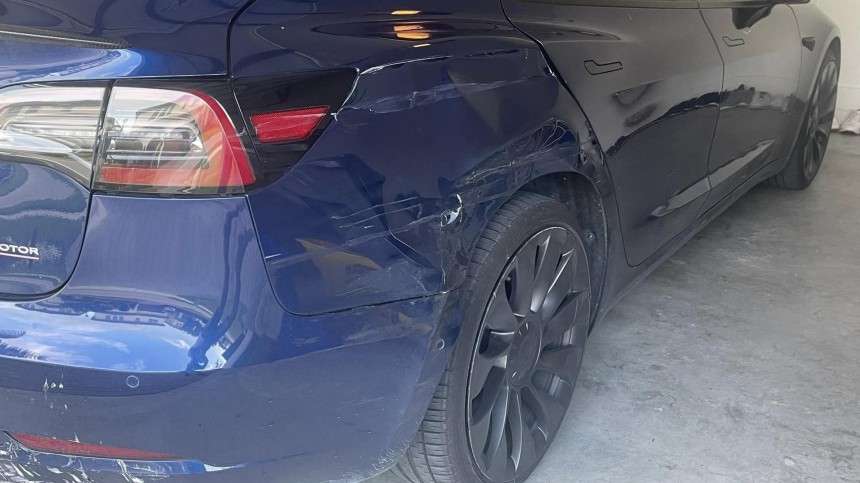In its latest US passenger car fleet analysis, S&P Global Mobility discovered that the average age of cars in the country has risen to 12.5 years. That has two explanations: constrained new vehicle sales and the increase in SUV and light truck sales – they are not considered passenger cars. However, the most interesting part of the analysis relates to battery electric vehicles (BEVs): they are leaving the fleet sooner than they should.
S&P Global Mobility preferred not to explain why. It just came to this conclusion after comparing the number of BEVs sold since 2013 to the number of new combustion-engined cars people bought since that year. Tesla released the Model S in 2012, and Nissan has had the LEAF in American showrooms since December 2010.
According to the business intelligence company, the US bought 2.3 million EVs from 2013 until the end of 2022, but only 2.12 million units remain in that market. That represents 6.6% fewer BEVs, which is quite a high rate compared to the 5.2% fewer ICE vehicles sold in the same period. There are 149.8 million units currently on American roads instead of the 158 million cars sold from 2013 until 2022.
S&P Global Mobility said that 758,000 BEVs met new customers last year alone, which means registrations have increased by 58% compared to 2021. Wouldn't that be enough to explain why the average age for BEVs dropped from 3.7 years in 2022 to 3.6 years in 2023? The business intelligence company's answer is no, although it would be great if it could elaborate on that.
BEVs have been selling more in the latest years, as S&P Global Mobility itself recognized. If 2.2 million were sold from 2013 until 2022 and last year alone added 758,000 cars to the fleet, 2022 was responsible for 34.5% of the total electric vehicles in the US until now. Supposing the 1.442 million BEVs that were not sold in 2022 were all sold in 2013, they would have an average age of nine years. Adding 758,000 new cars to that fleet would reduce the average age to 6.2 years.
That's not the only point that would be nice to clarify with S&P Global Mobility. It is crucial to compare apples to apples as well. As we do not have the sales numbers in 2023, the best would be to relate the average age of BEVs in 2022 to the figure in 2021.
I'll trust that S&P Global Mobility took all that into consideration to state that "BEVs are leaving the fleet more rapidly than their ICE and diesel counterparts." Although it has not mentioned the reasons for that, I have written about at least three.
The first possible reason for BEVs to disappear is how many crashes write them off. Just check any Facebook group dedicated to Teslas to see how many people post pictures of their crashed cars to ask fellow members if their cars are totaled or not. All the images in this article come from such situations – and there are plenty more where these came from. Some show damages that would be easily fixed if they involved combustion-engined cars. Most of the time, the answer is that the crash affected the battery pack, which will make the repair too expensive for the repair to make financial sense.
Thatcham Research started a five-month investigation in December 2022 to prevent that from happening. The idea is to understand the damages and urge EV makers to conceive their cars in a way that makes them more easily repairable. It will not be an easy task, particularly with Tesla.
The American EV maker is shifting its cars to mega castings to save manufacturing time. On the other hand, cast parts do not bend: they break. Repair shops are now tinkering with these structures to check if they can be welded, but the most likely repair will be replacing the cast part entirely. To make matters worse, the battery pack is structural and not repairable. If a crash affects it, forget it: the only way it will be of any use is to recover the raw materials it contains with the help of a shredder.
The second reason for EVs to vanish is battery packs failing in old cars. Several Tesla vehicles are now being affected by fatal errors reported by BMS_u029 and BMS_u018 codes. The battery pack replacement costs around $15,000 in the best-case scenario, with a remanufactured component, but many owners are refusing them, afraid that they may also fail soon. That leads to $20,000 replacements for cars that are worth $25,000: it does not pay off to fix them.
There's a third possibility: exporting used BEVs. Totaled and repaired electric cars often end up being sold abroad, as well as vehicles with a lemon title, such as Sergio Rodriguez's Model X. Ukraine killed eliminated customs duty for BEVs in 2016 and VAT – equivalent to a sales tax in the US – in 2018. That made the country a haven for used electric cars. The first documented Chevrolet Bolt EV fire happened there, in a country that never had official sales for this BEV.
Without knowing the impact of each of these three reasons for BEVs to disappear from the US, it will be challenging to address them, which is particularly concerning with battery pack damages and failures. If too many BEVs die for one of these two reasons, the large number of units produced and sold right now may become a ticking bomb a few years down the road. This is the only perspective in which it will make sense for Tesla to sell 20 million vehicles per year: with BEVs failing sooner than they should, the only way to replace them will be with new cars.
According to the business intelligence company, the US bought 2.3 million EVs from 2013 until the end of 2022, but only 2.12 million units remain in that market. That represents 6.6% fewer BEVs, which is quite a high rate compared to the 5.2% fewer ICE vehicles sold in the same period. There are 149.8 million units currently on American roads instead of the 158 million cars sold from 2013 until 2022.
BEVs have been selling more in the latest years, as S&P Global Mobility itself recognized. If 2.2 million were sold from 2013 until 2022 and last year alone added 758,000 cars to the fleet, 2022 was responsible for 34.5% of the total electric vehicles in the US until now. Supposing the 1.442 million BEVs that were not sold in 2022 were all sold in 2013, they would have an average age of nine years. Adding 758,000 new cars to that fleet would reduce the average age to 6.2 years.
I'll trust that S&P Global Mobility took all that into consideration to state that "BEVs are leaving the fleet more rapidly than their ICE and diesel counterparts." Although it has not mentioned the reasons for that, I have written about at least three.
Thatcham Research started a five-month investigation in December 2022 to prevent that from happening. The idea is to understand the damages and urge EV makers to conceive their cars in a way that makes them more easily repairable. It will not be an easy task, particularly with Tesla.
The second reason for EVs to vanish is battery packs failing in old cars. Several Tesla vehicles are now being affected by fatal errors reported by BMS_u029 and BMS_u018 codes. The battery pack replacement costs around $15,000 in the best-case scenario, with a remanufactured component, but many owners are refusing them, afraid that they may also fail soon. That leads to $20,000 replacements for cars that are worth $25,000: it does not pay off to fix them.
Without knowing the impact of each of these three reasons for BEVs to disappear from the US, it will be challenging to address them, which is particularly concerning with battery pack damages and failures. If too many BEVs die for one of these two reasons, the large number of units produced and sold right now may become a ticking bomb a few years down the road. This is the only perspective in which it will make sense for Tesla to sell 20 million vehicles per year: with BEVs failing sooner than they should, the only way to replace them will be with new cars.
